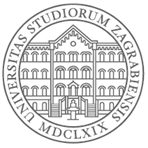University of Vermont (08/14/12) Joshua E. Brown
“University of Vermont researchers recently completed a study that aimed to discover if volunteers who visited two different Web sites could pose, refine, and answer questions of each other that could effectively predict the volunteer’s body weight and home electricity use. The researchers found that the self-directed questions and answers led to computer models that accurately predict a user’s monthly electricity usage and body mass index. “It’s proof of concept that a crowd actually can come up with good questions that lead to good hypotheses,” says Vermont professor Josh Bongard. However, the researchers acknowledge that the variables revealed by the questions and answers on the Web sites are correlated outcomes and not actual causes. “We’re not arguing that this study is actually predictive of the causes, but improvements to this method may lead in that direction,” says Vermont professor Paul Hines. The researchers see the new method as a way to help accelerate the process of scientific discovery. “We’re looking for an experimental platform where, instead of waiting to read a journal article every year about what’s been learned about obesity, a research site could be changing and updating new findings constantly as people add their questions and insights,” Bongard says.“



